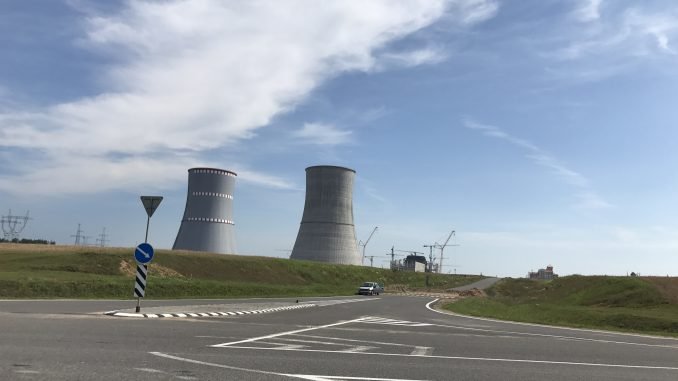
Lithuania’s State Nuclear Power Safety Inspectorate (VATESI) said on Tuesday that a working group set up by Lithuania’s authorities for reviewing Belarus’ report had formulated more than 100 remarks and questions regarding the plant’s resistance to extreme events.
Site selection, the key issue for Lithuania, is not covered in the report, which means that this issue and other important issues regarding environmental impact assessment, the quality of construction and future operations, and safety culture remain unanswered, the watchdog said in a press release.
Sigitas Slepavičius, deputy head for nuclear safety at VATESI, said that, in addition to the questions raised by Lithuania earlier and still unanswered by Belarus, the review of the stress test report had revealed certain shortcomings in the project that needed to be removed before the launch of the plant’s first unit.
The Lithuanian working group says that Belarus’ report fails to substantiate the plant’s ability to withstand the impact of a heavy aircraft crash and ensure the independence of the severe accident management system.
Lithuania also questions the plant’s extreme earthquake resistance analysis as it is based on surveys conducted back in 1997.
According to the press release, the stress tests fails to evaluate possible impacts of fires in nearby forests and other hazards, as well as possible flooding after an earthquake that could occur if the plant’s three artificial ponds on the River Neris collapse. The report also fails to substantiate the choice of extreme phenomena and evens for assessment.
Lithuania’s remarks and questions will be submitted by Jan. 25 to an international group of experts set up by the European Commission and the European Nuclear Safety Regulators Group (ENSREG).
The Lithuanian authorities and enterprises involved in the review of Belarus’ stress tests report are VATESI, the Lithuanian Energy Institute, VAE SPB, the Ignalina Nuclear Power Plant, the Lithuanian Geological Service, the Lithuanian Hydrometeorological Service, the Foreign Ministry, the Energy Ministry and the Radioactive Waste Management Agency (RATA).
The stress tests were performed by Atomproekt, a subsidiary of Russia’s Rosatom, the Astravyets project’s main contractor, in 2016.
Lithuanian government officials have said that the tests fail to provide answers to certain questions and call for tests to be conducted based on the EU methodology.
In an effort to hinder the project, Lithuania plans to block the import of electricity from the Astravyets plant.
